‘Something was wrong. I could tell my friend was shocked and scared. I could tell he was scared for me.’
Something was wrong. I tried to say what was happening and I couldn’t. I could tell my friend was shocked and scared. I could tell he was scared for me. Tears grew in my eyes, built and burst.
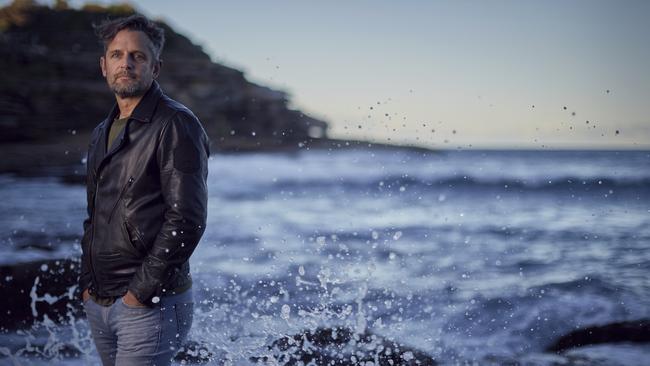
I can’t remember arriving late to work on July 16, 2004, but I probably did.
I would have gossiped and joked through the morning, perhaps replying to some emails and ignoring others. What work was done at Ralph was usually done in the afternoon. I took an early lunch hour with some of the other editorial staff, heading for the gym across the road, under the Catholic Club.
I’m 27 years old, fit, young, pretty happy and also lazy and cynical. I work at a large circulation men’s magazine loosely modelled on a very good counterculture British magazine called Loaded. The magazine I work for is not counterculture and is not Loaded, but I don’t really care.
I was in the gym when it happened. I was hitting the heavy bag: straights to the top of the bag, hooks to the middle, bashing at imaginary kidneys. I felt good – free and strong – but inside of me a blood clot, which had developed in my hip days or weeks before, had broken free from its vascular mooring and was wending its way through my bloodstream and up my body.
As a digital timer above a mirror counted down the seconds, I watched my form as I punched. The timer counted down to zero and then dinged three times. I shook the lactic acid from my arms. A large fan blessed me with cool air. My T-shirt was matted against my chest and my neck and face were hot and crimson. I felt great. I slowly shadow-boxed as 2Pac’s song California Love, one of my favourites, came over the stereo.
The timer’s chime struck twice and I was at it again. As I’d been trained to do, I breathed out sharply as I punched, creating abdominal pressure and transverse force into my glove.
Psht-psht.
THWACK-THWACK.
I would find out later that this is called the Valsalva manoeuvre. I would also find out later that a by-product of this manoeuvre can be an unusual haemodynamics, with blood travelling in an unusual direction in the body.
Unusual but almost always harmless. Almost always. The clot from my hip smuggled itself up to my chest and then gushed into my heart with some blood, entering the cardiac chambers through my aortic valve. My heart pumped, sending oxygenated blood through my chest, neck and up towards my brain. The clot followed. I kept hammering away at the bag.
Left, right, hook-hook. Psht, psht, psht-psht. I worked and boxed and sweated and the clot jerked around the vascular highways of my brain with each heartbeat, before wedging itself into a tight blood vessel a few inches behind my mouth. The clot was stuck, the vessel was clogged and blood that should be feeding a section of my brain with oxygen was trapped. The cells in my brain started to choke and die. My mind started to change.
I had been rapping in my head as I boxed, until the words of California Love blew away as though they were dust. Soon only the bouncing beat remained. Butterflies waltzed in my vision. A splotchy thought was in my head, one that I could only later define.
Strange.
That thought continued as I searched for the words to the song that rolled on without me. I couldn’t catch any of them in the front of my consciousness, not even the words “California” or “Love”.
Strange.
I stopped boxing and pulled my gloves off. I spun my wraps out. I was confused. I knew this song well.
Strange.
I stood naked in a cold shower. The waltzing butterflies in front of my eyes became kites of spotted light and colour.
Strange.
I managed to clothe myself and fill my gym bag. I walked out on to the street.
Strange.
The street seemed familiar but I didn’t know where to go.
Strange.
A face appeared in front of me, also flushed red from gym work. It’s a familiar face yet there’s no name associated with it.
Strange.
The familiar face recognised me. He was a friend. I knew I should say something, but there was nothing to say. I didn’t have any words accessible to me. I tried anyway. Something came out of my mouth. Verbal sludge. I understood the language of my friend’s face.
Panic.
Something was wrong. I tried again to say what was happening and again I couldn’t. I could tell my friend was shocked and scared. I could tell he was scared for me. Another emotion surged through my brain like a tide.
Sad.
I didn’t know then what I was losing, but I knew it was a lot. I was disconnected, so much so that I couldn’t account for exactly what and who I was disconnected from. The disconnection hurt very badly.
Sad.
Tears grew in my eyes then built and burst. They streamed down my cheeks. I looked at this friend, this stranger. I shrugged, palms upturned. The taste of my tears as they ran into the corners of my smile is a memory that endures.
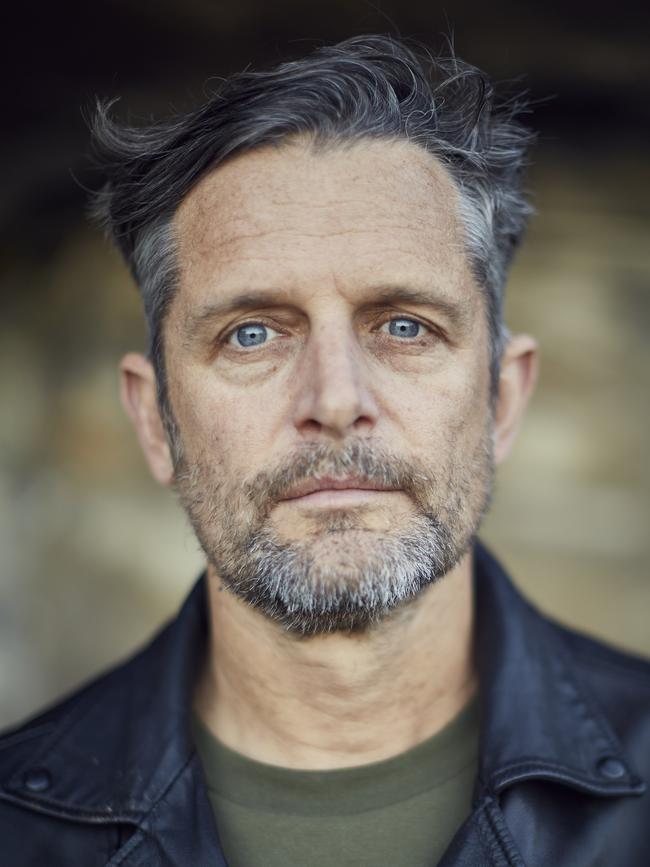
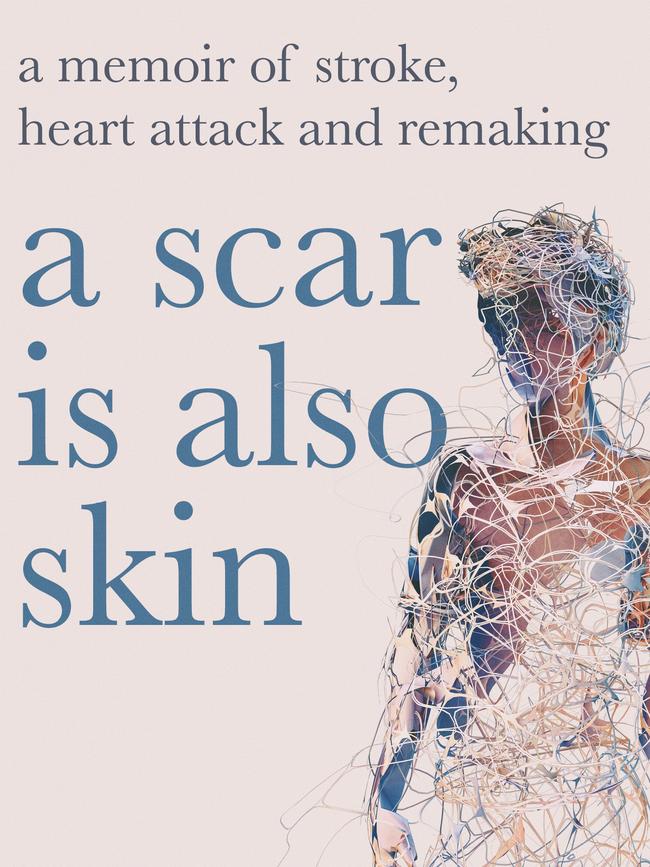
For the next hour or so, I was at a medical centre on Pitt Street in Sydney, staring blankly at an irritated receptionist and a medical consent form. I was told later she was convinced my brain was addled on ice. The strong emotional journey my brain had gone through in the first minutes after the event was likely mostly over. I say likely, because I only have grabs of memory after leaving the gym. In the medical centre, I remember the traffic outside, a sign with red letters on a white background, and my friend pleading for an ambulance.
I also remember one strong emotion. I’m not sure I can exactly explain the nomenclature of the emotion but it’s the feeling I used to have when, as a little boy, I’d be in bed in a darkened room with heavy skin and a fevered forehead, and I’d hear life continuing outside. Can disconnection be an emotion?
If so, it was that. This was something I would feel many times, and in varying degrees, in the weeks and months to come. I was eventually deposited at the emergency ward of St Vincent’s Hospital in Sydney. I was led to an examination room and there I waited, alone. The admitting physician arrived. My heart rate and blood pressure seemed fine, I had no pain nor mobility issues and there seemed to be no issues with my co-ordination. I could take instruction after charades and prompting, but I couldn’t understand any verbal instructions. I was almost wholly disconnected from language.
The doctor decided that something was going on. I found out later that he issued an initial diagnosis of infection in my cerebrospinal fluid.
-
Time passed, but I couldn’t really parse how much. Some friends arrived and I realised they’d finished their workday and it was evening. They would be going home or out for dinner. I would not be. I had that disconnected feeling again.
-
I knew my friends’ faces, but not their names. Another doctor came in and started speaking to me. As he spoke, I smiled and nodded in the way a toddler might when being spoken at: understanding the cadence of the language but little of the content. A friend persisted with me until I understood that I would be taken to a ward where they’d administer a lumbar puncture, so they could draw some cerebrospinal fluid and test it.
I remember the smell of the lumbar puncture. I remember a doctor, young and serious. I remember his sweater, very colourful like a Ken Done painting and clearly knitted by a loved one. I remember smiling like a dolt and I also vividly remember a shining moment of hope.
My friends were talking and joking over me as I lay on my hospital bed. I didn’t really understand their words, but tried to keep up as best I could so I would smile or chuckle, nod or shake my head when appropriate. I found myself staring at one friend’s T-shirt. Across it was one word, with illustrations around it. Through the idle chat of my friends, I focused on the shirt’s word and pictures. I understood the pictures. There were mountains, snow-capped, and there were black bears. I tried to read the word, I managed to read a letter. The first letter: V. I put the sound of the letter in my mind and rolled it around as you might roll a hard candy in your mouth. I managed to pull some other letters from the T-shirt and put those in my mind also. I tried to put the letters together, and then the sounds together. I added the pictures.
V-V … black bears … an-an … snowy mountains … V-V-Van … Vancouver!
The word on the shirt was Vancouver. I said it out loud, but quietly. I remember an instinct not to be embarrassed. I tried to put together a sentence explaining my revelation. None came, so I didn’t say anything. It felt good knowing that word. Hopeful.
That night, I was given a bed on a ward. I was already getting better, and I was understanding more and being able to say more. I was still confused by most sentences but questions like, “‘Do you want some tea?” could be answered with “Yes, please” or “No, thank you”.
In the relative quiet and dark of the hospital night, I understood that the doctors believed a virus was affecting me. That was something I thought I could handle. I’d had viruses before, and they’d run a predictable path but after finding my cerebrospinal fluid was normal, and after a CT scan and then an MRI scan, it was decided that I hadn’t suffered a virus but a stroke.
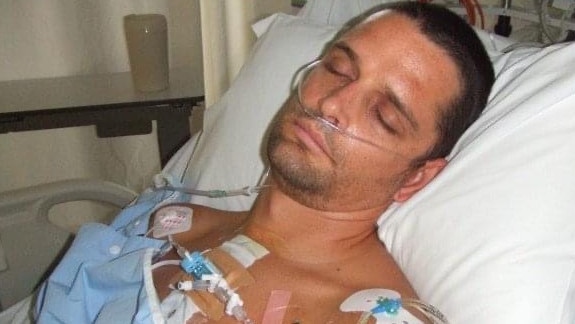
I don’t remember exactly when I was first given this information, but I remember doctors saying the word “stroke” to me when listing the things that probably didn’t happen to me, and then when listing things that may have happened to me, and eventually it was described as fact. An older doctor came to me one day with a group of studious-looking men and women who were all younger than I was. They crowded around me while the older doctor rattled off a long string of descriptors to his students. The word “ischaemic stroke” was wedged in the middle. As he was about to move on to the next bed, I touched his arm.
“Stroke?” I asked.
“Yes.”
“I had a stroke?”
“Yes.”
“You sure?”
Flipping through the file at the end of my bed, he hummed until he found what he was looking for. “Yes. Stroke,” he said.
He patted my hand and moved on.
I’d been in hospital a couple of weeks and my migraines and nausea had stopped.I’d stopped taking morphine and I’d been disconnected from my heart monitor and drip.
I was getting better. I read comics, watched movies and, with the prodding and testing over, I was ready to go home. I was discharged from hospital, went home and resumed my life, essentially. I couldn’t read easily yet, but from the outside it seemed no other aspect of my life had been significantly affected. From the inside, though, things were definitely different. If I allowed myself any quietude, there was no getting away from the fact that my brain had changed and so had I. I didn’t want a brain that had changed and I didn’t want a different life, so the answer to that problem was to refuse any moments of quietude that may intrude.
When I returned to work I did tasks that required the least amount of English comprehension and composition – captioning, interviewing glamour models and personalities to be used as Q&A text, and writing short movie and music reviews. Then, perhaps four months after the stroke, I attempted my first long-form piece of writing.
The story required me to go to Willowbank Raceway in Queensland and write a piece about a family who had made money in the crane business, and had put that money into a drag-racing team. I spent weeks arranging and rearranging text and quotes that couldn’t have been more than 2000 words. I convinced myself that there was sense in the document that I’d created; that I’d introduced people, a place and milieu and, through description and quotes, I’d taken the reader on a journey.
What I’d written was unreadable gabble.
The filing process in our office was that when you had finished a story, you’d move the first draft of it on to the office server so it could be subedited, and then a printed copy would be left on the magazine editor’s desk. My desk had a direct line of sight to the editor and I watched him pick my feature up and slump deeper and deeper into his chair as he read.
I felt my face flush.
It was depressing, but the absurdity of the situation also amused me. The magazine was, at the time, overstaffed with some odd characters, so I figured I’d probably just be the illiterate editor for a while: “Here’s Ben, our features editor. He can’t read or write.” If I didn’t get better, I figured I’d just find something else to do. I wasn’t ambitious, nor did I have any expectation that I’d be a good writer.
Those months after the stroke were hazy, but some moments are crystallised, and I vividly remember wondering why I was unbothered by my disordered and almost unusable copy. I figured that it must be that I didn’t want more in life than to drink for free and see movies and fly around the world. If I had to pay for those privileges, it’d be a shame, but almost anything else I might do would likely pay better than working at a magazine so it’d work itself out. Winston Churchill once said: “Never let a good crisis go to waste”, which is exactly what I was doing. Thankfully, this crisis was far from done.
The truth was, I gave less of a f--k about the magazine every month I worked on it. I should have left Ralph before I had my stroke, but I didn’t. I had fun at my job. Why would I leave? Then I had my stroke. This should have been the moment in which I realised there was something better to do with my life, but I had no epiphany. After the stroke, I just considered myself lucky that I worked in a place where there was no pressure to excel, or even turn in much work.
At the beginning of 2005, I had accrued a lot of leave and considered a big trip. I travelled quite often for work, often interstate and to the United States and Canada, and all of it was fun, but I really wanted an adventure.
At Ralph, we often did things that looked like adventure, but they were usually safe, stage-managed PR exercises paid for by some advertiser or another. I wanted a real adventure. I wanted to see some of the world.
And so it happened that I was in Israel, with only a few days before my return, that I realised there was no way I could go back to my job.
There was a world out there, of places but also emotions, stories and experiences and, knowing that, I couldn’t return to that office and write another listicle sponsored by an alcohol company. I wasn’t confident that I’d be able to do more. I was still uncertain about my brain and my prospects outside the magazine. I was a slow writer, often listless and lazy, something I had attributed to my stroke. The magazine was an unhealthy environment. I was a cynic when working there, and there was an inherent sexism in the work that permeated my attitudes also. I had become cloistered, however, especially after my stroke, and I feared what may be next from me.
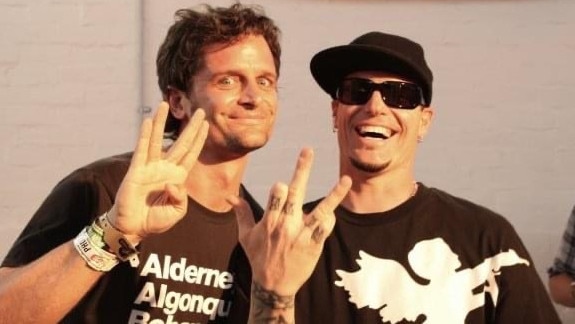
In Israel, I figured it didn’t matter what happened next. What mattered was just that I left. The worst that may happen is that I wouldn’t find a magazine job and that I’d have to find an unskilled job until I figured out what to do next. That was the absolute worst that may happen, and that wasn’t so bad. Working outside as a labourer must have its perks.
As I flew back to Sydney from Tel Aviv, I even entertained the best-case scenarios. I ate modern military books up and was rarely seen without a book by someone like George Packer or David Finkel. Maybe it wasn’t too late to try to do something approximating what they did. Maybe I could go back to the Middle East and do some freelancing, and maybe that work could convert into more work. It felt like a pie in the sky dream, but isn’t that what your twenties are for?
Twelve or so hours after landing in Sydney, I was in the outgoing editor’s office handing him an envelope in which there was a sheet of paper with one giant word on it: RESIGNATION. He opened the letter and chuckled. I chuckled too.
“Right-o,” he said.
That was that. What came next I had no idea. I sent emails to as many editors of Australian magazines as I could, telling them that I would soon be available for freelance work. I also responded to a press release from the Australian Defence Force looking for expressions of interests from journalists who may want to spend time with Australian forces in the field.
Then, a few days after handing in my resignation, a spasm of pain sharded from the top of my breastbone, left and right towards my shoulders and up at my throat.
I clutched at my chest, sat down on a concrete planter and started to have a heart attack.●
Ben Mckelvey is the author of The Commando: the life and death of Cameron Baird, VC; and Mosul: Australia’s secret war inside the ISIS caliphate. This is an edited extract from A Scar is Also Skin: A memoir of stroke, heart attack and remaking by Mckelvey (Hachette, $34.99), out Wednesday


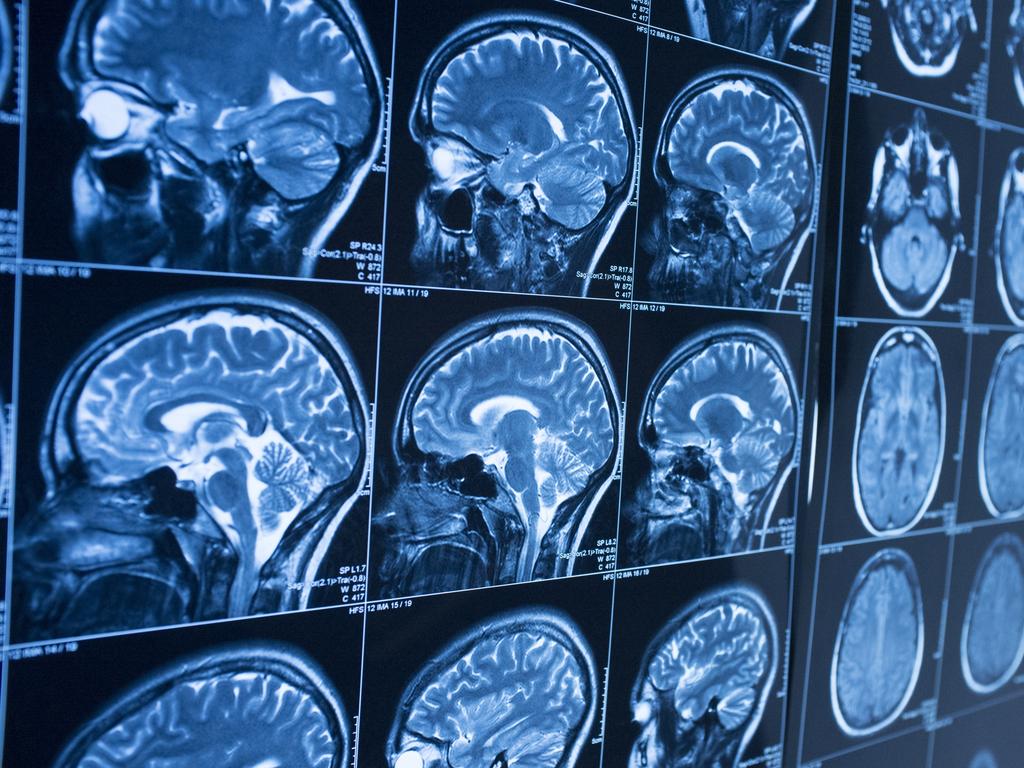
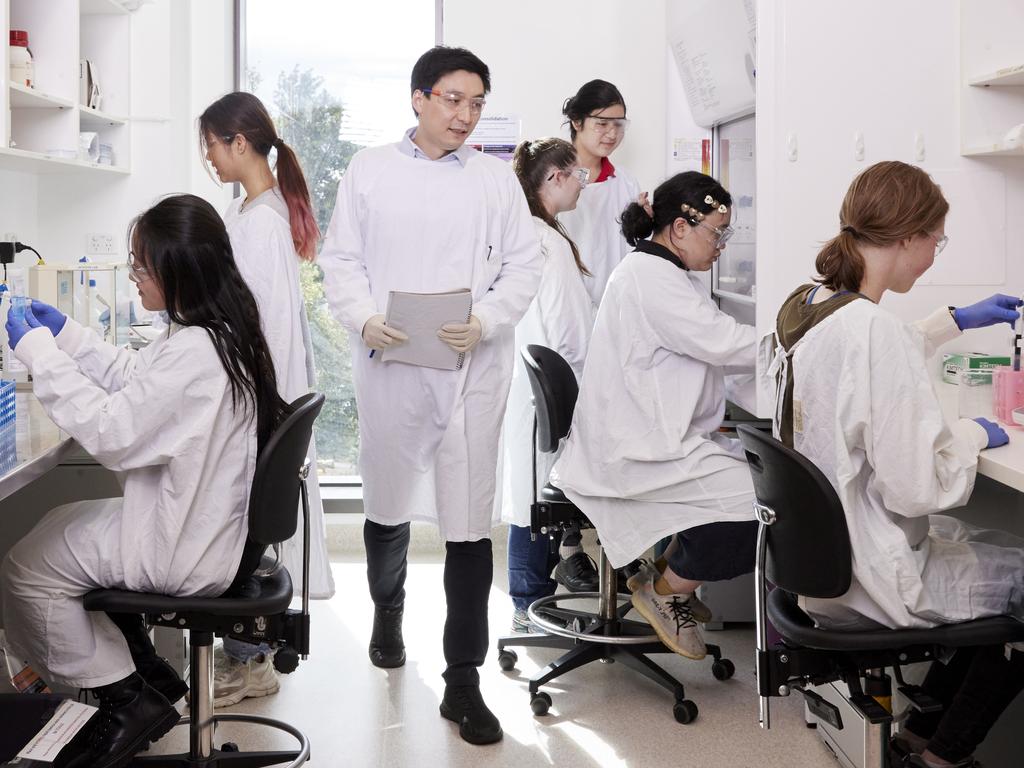
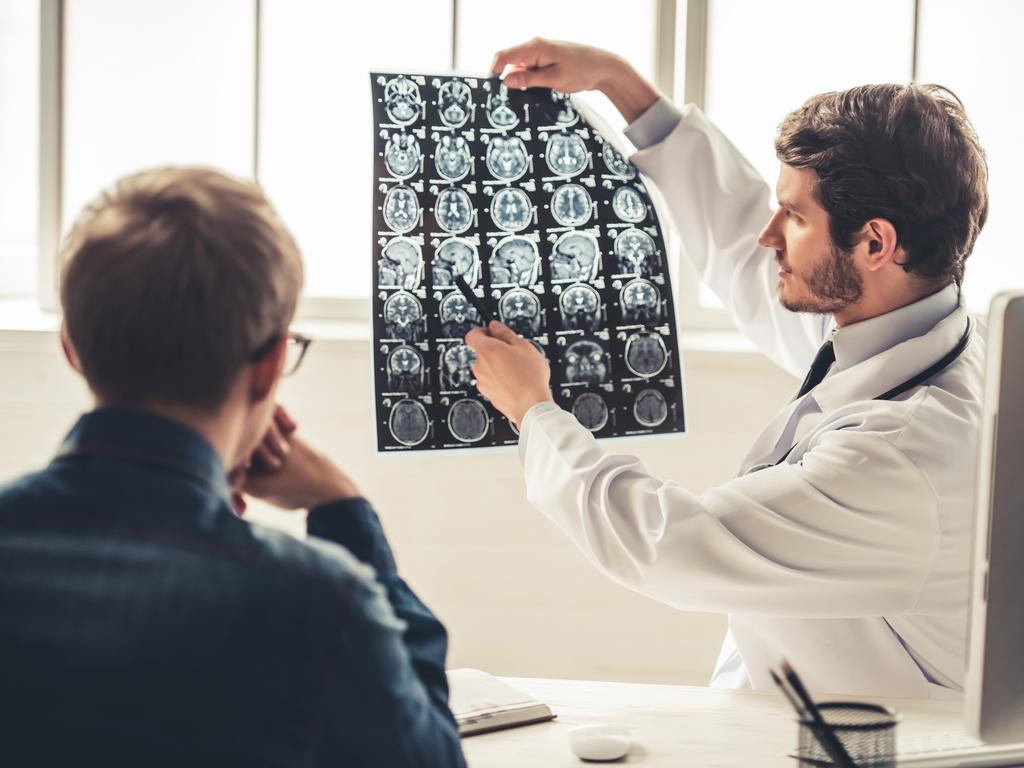
To join the conversation, please log in. Don't have an account? Register
Join the conversation, you are commenting as Logout